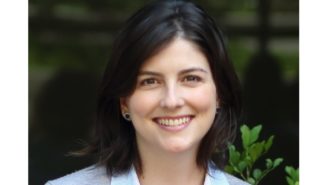University of Münster

With over 44,000 students, the University of Münster is one of the largest universities in Germany. Its wide range of studies and the variety of research lines, as well as the atmosphere and quality of life in the city of Münster, make it a point of attraction for national and international students and scientists. Unlike modern university campuses, the University of Münster has developed over its two centuries of history. The institutes and departments are spread over more than 200 buildings throughout the city.
Over 120 subjects in 280 undergraduate and graduate courses
The list of courses offered includes more than 120 subjects in the areas of Social Sciences and Humanities, Life Sciences and Medicine and Natural Sciences. Large faculties enjoying excellent reputation such as Law, Economics and Administration, Psychology or Medicine attract many thousands of students annually to Münster. But the University of Münster also stands out for a range of disciplines, which can only be studied in a few universities in Germany, such as Islamic Studies, Geoinformatics and Landscape Ecology. Furthermore, the University of Münster has a wide range of postgraduate programs, including master’s courses, individual doctorates and structured doctoral programs.
High level of research
The profile of university research is quite broad. With its two excellence clusters “Religion and Politics” and “Mathematics Münster”, the university has positioned itself among the top German institutions within the so-called “Strategy of Excellence” created by the German federal and state governments. Other areas of recognized reputation are Cell Dynamics and Imaging, Battery Research, Nanosciences, Evolution and Medical and Health Sciences, including basic clinical research, in addition to a wide range of projects of national and international expression in the Social Sciences and Humanities. Additionally, University of Münster has sought to expand its innovation and knowledge transfer activities.
Internationalization
The scientific contacts of Münster’s researchers reach all continents. Official partnerships and cooperation agreements connect the University of Münster with more than 550 universities and research institutes worldwide. There are several institutional agreements with Brazilian entities, including CAPES and FAPESP funding agencies, and dozens of scientific partnerships. Around 3,500 foreign students from over 125 countries are currently enrolled at the University of Münster.
The University of Münster in numbers
280 undergraduate courses, 15 faculties, 44,400 students, 7,600 students graduated in 2020, almost 600 professorships, 4,870 scientific collaborators, more than 35 structured doctoral courses with its own and external funding, around 50 coordinated research centres and groups with funding from the DFG and 10 with support from the European Union, 2 clusters of excellence.
The Brazil Centre of the University of Münster
For over 50 years, the University of Münster has been in close contact with researchers and universities in Brazil, which led to the establishment of dozens of cooperation initiatives in many different research areas, as well as to formal agreements with renowned Brazilian universities and institutions. To that end, in 2010, the Brazil Centre of the University of Münster was founded. The mission of the Brazil Centre is to deepen the levels of cooperation of the University of Münster with Brazil in the areas of teaching, research, and transfer of knowledge, as well as to advise and support the academic community and institutes of the University in these fields. The cooperation with Brazil takes place in areas as diverse as music, physics, chemistry, biology, medicine, pharmacology, information systems, geoinformatics, geography, political sciences, law, art history, among others. Through its liaison office in São Paulo, the Brazil Center offers a support service for Brazilian universities and students interested in researching and studying in Germany.
The tasks of the Brazil Centre comprise:
- Establishment and development of institutional cooperation
- Support for the initiation and monitoring of joint research and teaching projects
- Identification of research partners within the University of Münster and in Brazil
- Guidance and support for professors, researchers and students at University of Münster and Brazil on cooperation and mobility/exchange opportunities.
- Monitoring and communication of funding opportunities
- Support for activities aimed at knowledge transfer
- Organization and participation in events to promote exchange and cooperation opportunities
- Maintenance of a network of Brazilian alumni

